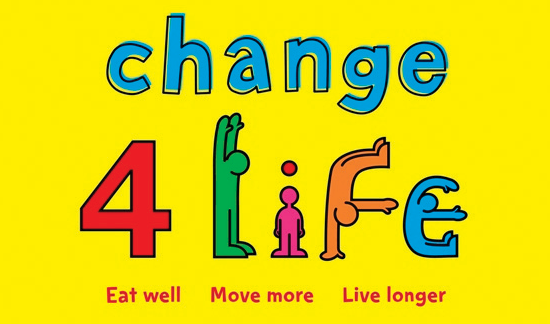With healthy habits from birth, you can give your baby a good start for a healthy and happy future. Breast milk is ideal for your baby’s growing needs. Talk to your health visitor if you have any questions about how and when best to wean your baby.
Babies’ weight should be monitored regularly and recorded in their ‘red book’. Most babies do not need to be weighed more than once a month in the first 6 months, once every two months between 6-12 months and then once every three months, unless there are concerns.
It is easy to develop healthy eating habits at an early stage, as babies like the foods they get used to. If you give them lots of different foods to try when they are babies and toddlers, they are more likely to eat a wider variety of healthy foods as they grow up. Avoid salt, sugar, honey, nuts, saturated fats, low-fat foods, raw shellfish or eggs for babies.
Being physically active plays an important part in your baby's development. You can help them by playing with them and helping them explore their surroundings. Exercise helps with all aspects of physical and mental well-being and it helps stop children becoming overweight or obese.
After the first year, weight gain will slow down. This will affect your child’s appetite. They may eat lots at some meals, and barely touch anything during others. The correct portion size can also make a difference. A huge plate of food can seem very daunting.
Many children go through phases of refusing to eat or being ‘fussy’ or ‘picky’ eaters. Gradually introduce other foods – one at a time - or go back to the foods your child didn’t like before and try them again.
Try to make sure your child eats some food from the four main food groups - milk and dairy products, starchy foods (such as bread, rice and pasta) fruit and vegetables, protein (such as chicken, fish or eggs), even if it’s always the same old favourites.
Toddlers have a sensitive palate and may not like the texture, colour or taste of some foods.
If you are worried about your child’s weight, growth, or health you should contact your GP or health visitor.
Ten Tips for fussy eaters
Your child will learn from you so eat your meals together if possible.
-
Give small portions and praise your child for eating, even if they only manage a little.
-
Limit options at meal times and include at least one thing that you know they like.
-
If your child rejects the food, don’t force them to eat it. Try to stay calm!
-
Don’t leave meals until your child is too hungry or tired to eat.
-
Your child may be a slow eater so be patient.
-
Don’t give too many snacks between meals. Limit them to a milk drink and some fruit slices or a small cracker with a slice of cheese.
-
Watch the amount of fluids given and offer drinks after a meal rather than too close to mealtimes. Fluids will fill them up and reduce their appetite for food.
-
It’s best not to use food as a reward. Your child may start to think of sweets as nice and vegetables as nasty. Instead, reward them with a trip to the park or play a game with them.
-
Involve your child with food-related activities such as shopping, preparing and cooking meals.
Many parents are unaware of the dangers of their child being overweight or obese but by following the top tips below you can make a difference to your child’s health.
-
Meal Time - It’s important for kids to have regular, proper meals as growing bodies respond better to routine. From 12 months aim for 3 meals and 2 snacks.
-
5 A Day - Include 5 portions of fruit and/or vegetables a day.
-
Sugar Swaps - Avoid sugary drinks particularly between meals - water or milk are the best option.
-
Snack Check - Many snacks are very high calorie, and contain sugar, salt and fat.
So limit snacks and try fruit, cut vegetables or breadsticks instead.
-
Me Size Meals - It’s important to make sure kids get just the right amount for their age.
-
Up and About - Children are naturally active. Limit the amount of time they spend watching TV or playing computer games. Children under five should ideally get 3 hours of activity everyday.

Source: Change4Life - DoH 2009 (www.dh.gov.uk/obesity).
1
My child is a fussy eater and I worry that they are not getting enough food.
2
If your child is active, gaining weight in line with the growth chart in the red book, and they're not ill, then they’re getting enough to eat. Give your child a children’s vitamin supplement. See the Healthy start vitamin’s page.
3
Set a time limit of 20-30 minutes and if the food isn’t eaten take it away. Don’t get cross. Refusing food often loses its appeal if you ignore it.


